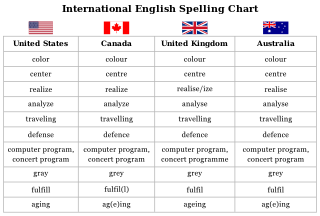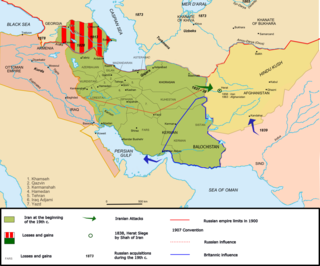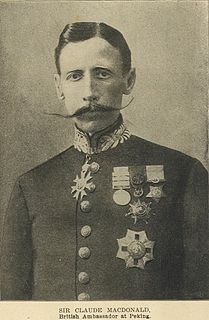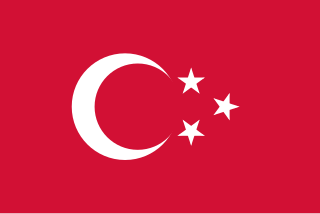Related Research Articles

British English (BrE) is, according to Lexico, "English as used in Great Britain, as distinct from that used elsewhere". More narrowly, it can refer specifically to the English language in England, or, more broadly, to the collective dialects of English throughout the British Isles taken as a single umbrella variety, for instance additionally incorporating Scottish English, Welsh English, and Northern Irish English. Tom McArthur in the Oxford Guide to World English acknowledges that British English shares "all the ambiguities and tensions [with] the word 'British' and as a result can be used and interpreted in two ways, more broadly or more narrowly, within a range of blurring and ambiguity".
Old English, or Anglo-Saxon, is the earliest recorded form of the English language, spoken in England and southern and eastern Scotland in the early Middle Ages. It was brought to Great Britain by Anglo-Saxon settlers in the mid-5th century, and the first Old English literary works date from the mid-7th century. After the Norman conquest of 1066, English was replaced, for a time, by Anglo-Norman as the language of the upper classes. This is regarded as marking the end of the Old English era, since during this period the English language was heavily influenced by Anglo-Norman, developing into a phase known now as Middle English in England and Early Scots in Scotland.
The Treaty of London or London Convention or similar may refer to:

The Entente Cordiale comprised a series of agreements signed on 8 April 1904 between the United Kingdom and the French Republic which saw a significant improvement in Anglo-French relations. Beyond the immediate concerns of colonial demarcation addressed by the agreement, the signing of the Entente Cordiale marked the end of almost a thousand years of intermittent conflict between the two states and their predecessors, and replaced the modus vivendi that had existed since the end of the Napoleonic Wars in 1815 with a more formal agreement. The Entente Cordiale represented the culmination of the policy of Théophile Delcassé, who believed that a Franco-British understanding would give France some security in Western Europe against any German system of alliances. Credit for the success of the negotiation of the Entente Cordiale belongs chiefly to Paul Cambon and to the British Foreign Secretary, Lord Lansdowne.

£sd is the popular name for the pre-decimal currencies once common throughout Europe, especially in the British Isles and hence in several countries of the British Empire and subsequently the Commonwealth. The abbreviation originates from the Latin currency denominations librae, solidi, and denarii. In the United Kingdom, these were referred to as pounds, shillings, and pence.
In an English-speaking country, Standard English (SE) is the variety of English that has undergone substantial regularisation and is associated with formal schooling, language assessment, and official print publications, such as public service announcements and newspapers of record, etc. SE is local to nowhere: its grammatical and lexical components are no longer regionally marked, although many of them originated in different, non-adjacent dialects, and it has very little of the variation found in spoken or earlier written varieties of English. According to Peter Trudgill, Standard English is a social dialect pre-eminently used in writing that is distinguishable from other English dialects largely by a small group of grammatical "idiosyncrasies," such as irregular reflexive pronouns and an "unusual" present-tense verb morphology.

Anglo-Americans are people who are English-speaking inhabitants of Anglo-America. It typically refers to the nations and ethnic groups in the Americas that speak English as a native language who comprise the majority of people who speak English as a first language.

Zibhebhu kaMaphitha Zulu (1841–1904) was a Zulu chief. After the defeat of the Zulu Kingdom by the British, he attempted to create his own independent kingdom. From 1883 to 1884, he fought the Zulu king Cetshwayo, inflicting a series of defeats on him.

The Anglo-Russian Convention of 1907, or Convention between the United Kingdom and Russia relating to Persia, Afghanistan, and Tibet, was signed on August 31, 1907, in Saint Petersburg. It ended the longstanding rivalry in Central Asia and enabled the two countries to outflank the Germans, who were threatening to connect Berlin to Baghdad with a new railroad that could potentially align the Ottoman Empire with Imperial Germany.

The Franco-Russian Alliance, or Russo-French Rapprochement, was an alliance formed by the agreements of 1891–94; it lasted until 1917. The strengthening of the German Empire, the creation of the Triple Alliance of 1882, and the exacerbation of Franco-German and Russo-German contradictions at the end of the 1880s led to a common foreign policy and mutual strategic military interests between France and Russia. The development of financial ties between the two countries created the economic prerequisites for the Russo-French Alliance.

Colonel Sir Claude Maxwell MacDonald, was a British soldier and diplomat, best known for his service in China and Japan.
Hobson-Jobson: A Glossary of Colloquial Anglo-Indian Words and Phrases, and of Kindred Terms, Etymological, Historical, Geographical and Discursive is a historical dictionary of Anglo-Indian words and terms from Indian languages which came into use during the British rule in India.

Samory Toure, also known as Samori Toure, Samory Touré, or Almamy Samore Lafiya Toure, was a Muslim cleric, a military strategist, and the founder and leader of the Wassoulou Empire, an Islamic empire that was in present-day north and south-eastern Guinea and included part of north-eastern Sierra Leone, part of Mali, part of northern Côte d'Ivoire and part of southern Burkina Faso. Samori Ture was a deeply religious Muslim of the Maliki jurisprudence of Sunni Islam.

The British conquest of Egypt (1882), also known as Anglo-Egyptian War, occurred in 1882 between Egyptian and Sudanese forces under Ahmed ‘Urabi and the United Kingdom. It ended a nationalist uprising against the Khedive Tewfik Pasha. It established firm British influence over Egypt at the expense of the Egyptians, the French, and the Ottoman Empire, whose already weak authority became nominal.

The Gold Coast was the name for a region on the Gulf of Guinea in West Africa that was rich in gold, petroleum, sweet crude oil and natural gas. This former region is now known as the country of Ghana.

The Khedivate of Egypt was an autonomous tributary state of the Ottoman Empire, established and ruled by the Muhammad Ali Dynasty following the defeat and expulsion of Napoleon Bonaparte's forces which brought an end to the short-lived French occupation of Lower Egypt. The Khedivate of Egypt had also expanded to control present-day Sudan, South Sudan, Eritrea, Djibouti, northern Somalia, Israel, Lebanon, Jordan, Syria, Greece, Cyprus, southern and central Turkey, in addition to parts from Libya, Chad, Central African Republic, and Democratic Republic of Congo, as well as northwestern Saudi Arabia, parts of Yemen and the Kingdom of Hejaz.

Egypt–United Kingdom relations are the diplomatic, economic, and cultural relationships between Egypt and Great Britain. Relations are longstanding. They involve politics, defence, trade and education, and especially issues regarding the Suez Canal.

The history of Egypt under the British lasts from 1882, when it was occupied by British forces during the Anglo-Egyptian War, until 1956 after the Suez Crisis, when the last British forces withdrew in accordance with the Anglo-Egyptian agreement of 1954. The first period of British rule (1882–1914) is often called the "veiled protectorate". During this time the Khedivate of Egypt remained an autonomous province of the Ottoman Empire, and the British occupation had no legal basis but constituted a de facto protectorate over the country. Egypt was thus not part of the British Empire. This state of affairs lasted until 1914 when the Ottoman Empire joined the First World War on the side of the Central Powers and Britain declared a protectorate over Egypt. The ruling khedive was deposed and his successor, Hussein Kamel, compelled to declare himself Sultan of Egypt independent of the Ottomans in December 1914.
The Anglo-French Convention of 1898, full name the Convention between Great Britain and France for the Delimitation of their respective Possessions to the West of the Niger, and of their respective Possessions and Spheres of Influence to the East of that River, also known as the Niger Convention, was an agreement between Britain and France that concluded the partition of West Africa between the colonial powers by finally fixing the borders in the disputed areas of Northern Nigeria. It was signed in Paris on 14 June 1898, ratifications were exchanged on 13 June 1899.
The Anglo-French Convention of 1889 was a diplomatic agreement signed on August 10th, 1889 between Great Britain and France that delimited the border between the Gambia Protectorate and the colony of Senegal, as well as between the Lagos Colony and Dahomey. The Senegambian border was set at ten kilometers north and south of the river as far inland as Yarbutenda, with a 10km radius to mark the eastern border measured from the center of town. The British therefore controlled the river as far as it was navigable by sea-going vessels. Though widely seen as temporary at the time, this borders set in 1889 has remained unchanged ever since.
References
- ↑ O'Toole, Thomas; Baker, Janice E. (2005). Historical Dictionary of Guinea. Volume 94 of African historical dictionaries, Scarecrow Press. p. 8. ISBN 0-8108-4634-9.